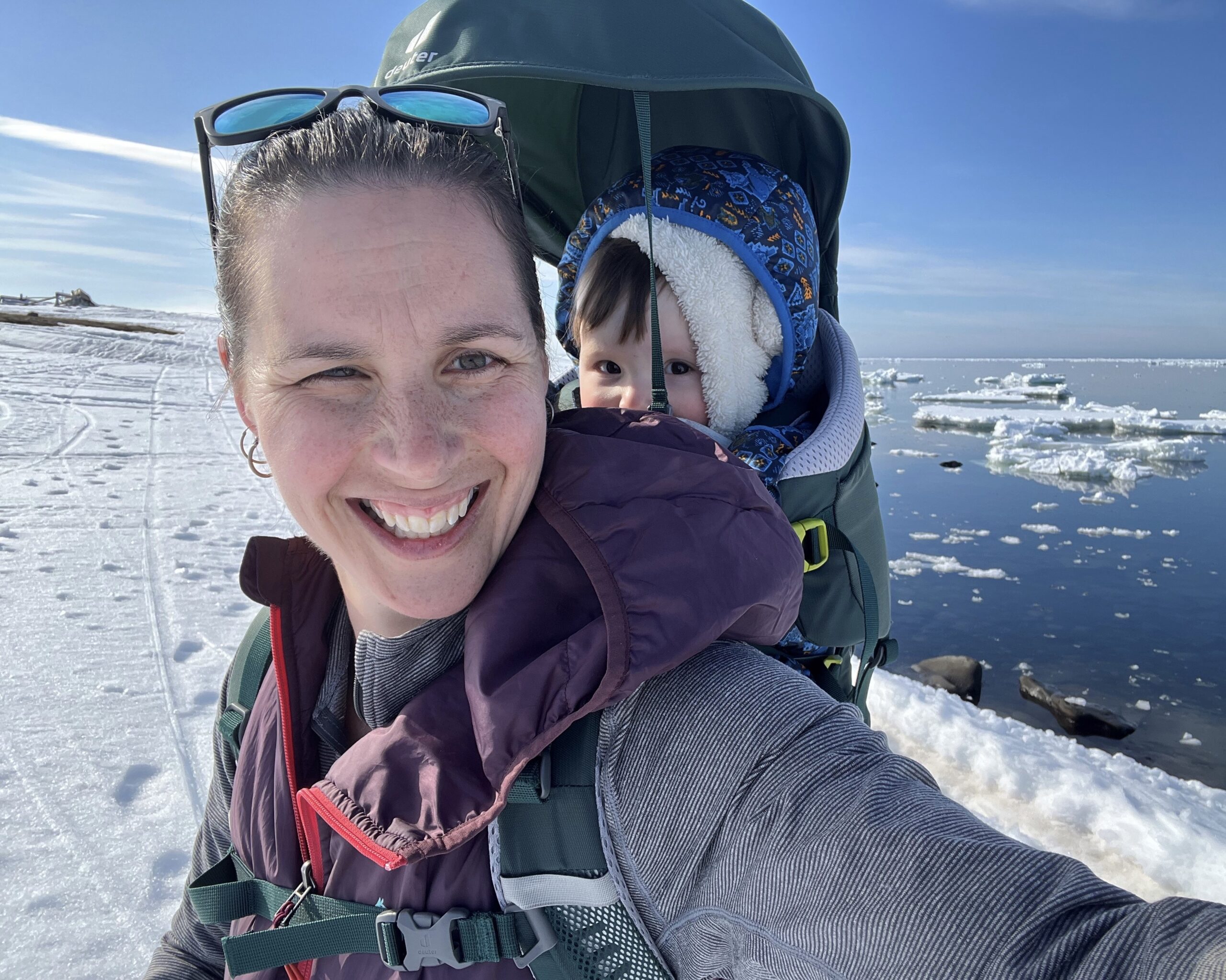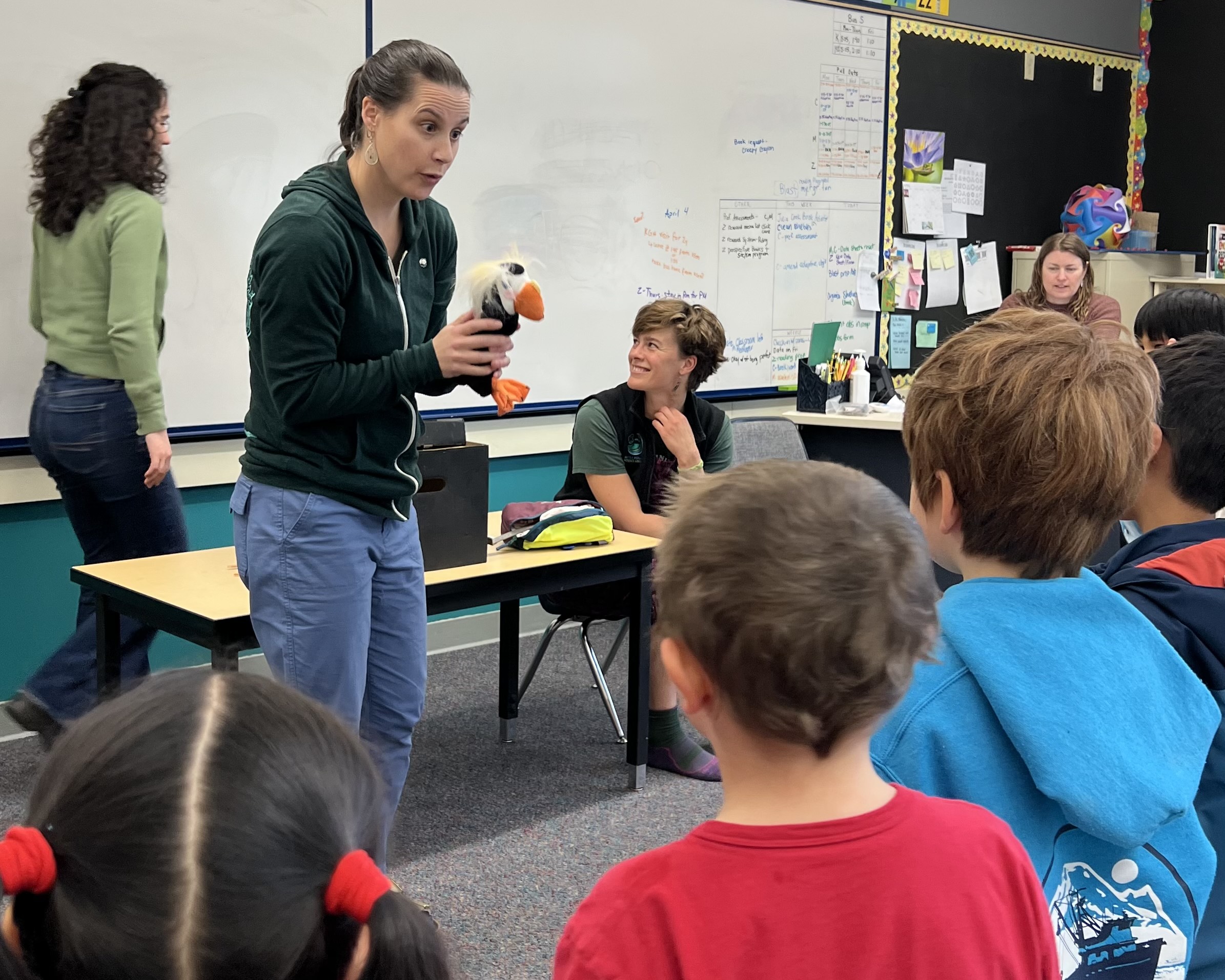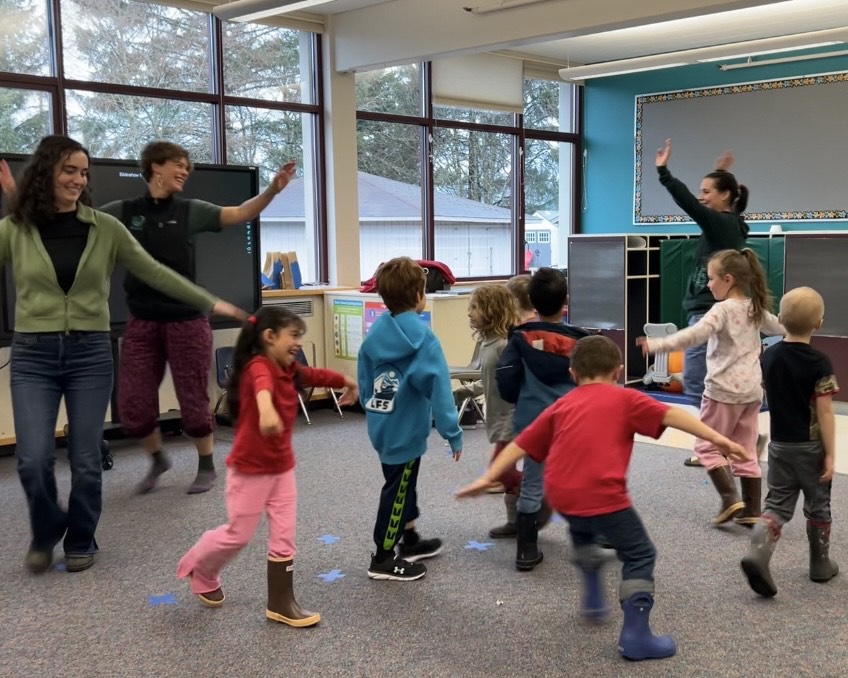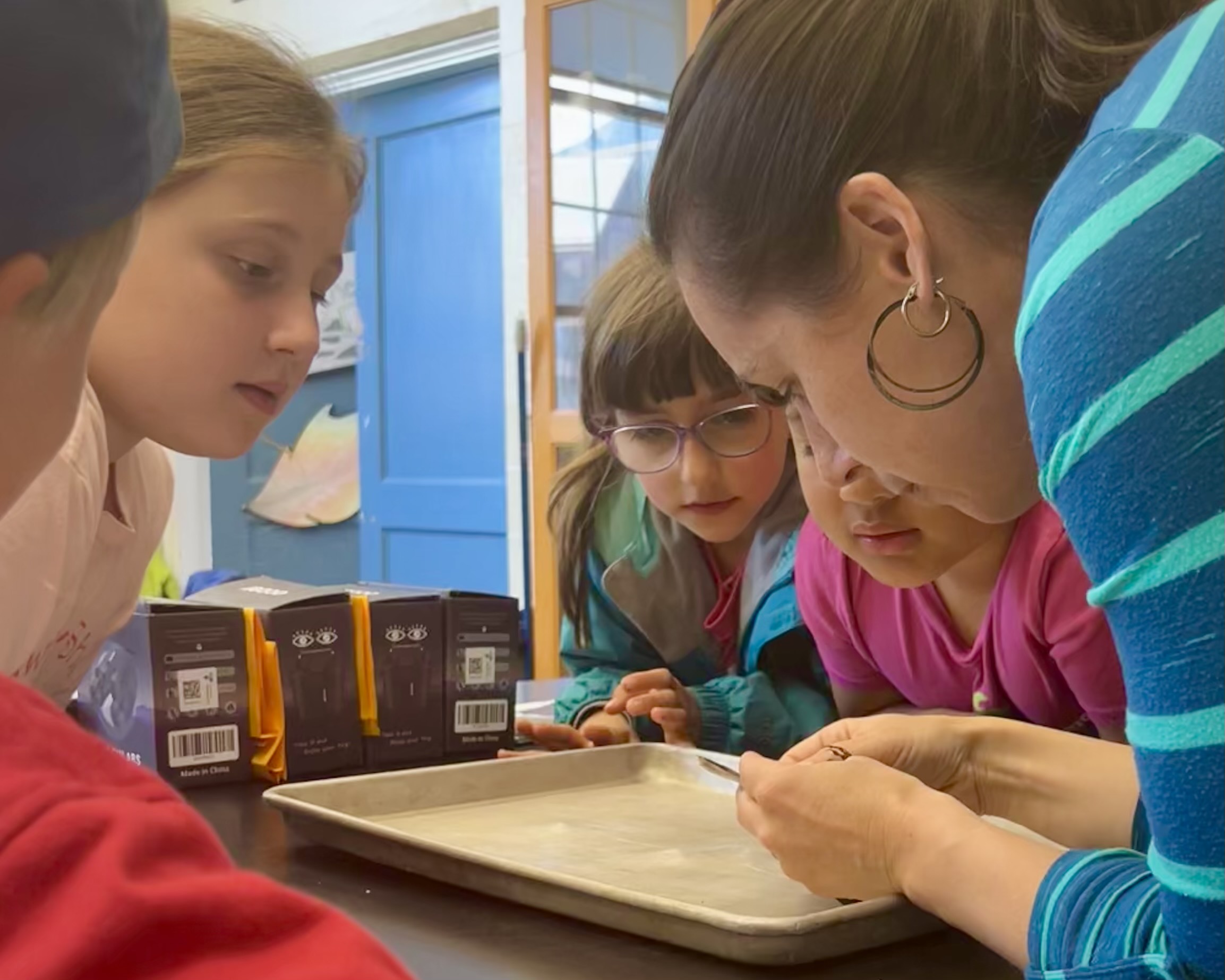
News, Education, Featured
News, Education, Featured
News, Education, Featured
Sitka Seabird Scientist
Dr. Alexis Will, seabird scientist, didn’t see herself as a scientist when she was younger. She never declared that as her future occupation with the certainty of the other kids around her announcing that they would be astronauts or engineers or nurses when they grew up. Even now, she says, sometimes her job doesn’t feel real.
“Definitely some days I’m like, ‘I’m a scientist?!’” she told me.
Will grew up here in Sitka, always around the water. She loves the ocean and the outdoors, and studying seabirds keeps her close to both of those things. Seabirds are, in her words, “a window into what’s happening in the ocean,” but they’re not the only species that provide that insight. So what brought her to birds, specifically?
“I could’ve ended up studying fish, or sea stars, or anemones, but it just happened that my first real field job was with seabirds.” She laughed a little as she admitted she’d never thought too much about birds before that first field job. “It was fun and interesting, so I did another field job with birds, and another field job with birds, and the next thing you know…”
Being outdoors wasn’t the only thing that pulled her to science, though.
“I have a long history of horrible science fair projects. The worst!” Will exclaimed. One of those projects, which involved boiling cabbage to create dye, was “so boring that nobody stopped to ask questions about it.” Another one, where she marked limpets to see if they returned to the same place on a rock, resulted in her scrambling around a beach in the dark, trying to dot rocks with gel pens and nail polish (spoiler alert: the marks didn’t stick). Rather than being discouraged by these setbacks, Will realized she needed to improve the questions she was tackling with her work.
“I got to the point where I was like, ‘I want to ask the questions, but my questions are all lame.’ So I went to grad school to try to ask better questions.” She laughed.
Today, her questions take her to various Alaskan islands in the Bering Sea where she monitors seabirds firsthand. Her work looks closely at behaviors of seabirds and how they respond to changes in their environment, including studying their foraging behavior and migratory patterns. To determine what causes the birds’ observed behaviors she and other researchers look at different physical markers, such as stress hormones and molecular damage.
When she’s not out in the field, she calls Fairbanks home, where in winter the moonlight on the snow can make some nights so bright you don’t even need a headlamp. Summer, however, is a different story entirely— “Having two small children in a mosquito swamp is not fun. It’s a bit hard to watch your children get the blood sucked out of them!” She’s returned to her hometown of Sitka for a few weeks to escape the mosquitoes, and would like to summer here more often.
Her current visit happened to line up with a relevant summer camp put on by SSSC, and so she was invited to contribute! Will joined us to help develop and lead Feathered Fliers, a camp for elementary students that investigated bird behaviors and feather structure. We are very grateful to her for lending her expertise to our camp and encouraging scientific exploration with our campers..
This wasn’t her first trip to Sitka this year, though: she was just here in April, visiting an elementary class as part of our Scientists in the Schools (SIS) program. Before ever working with SSSC, she had kept tabs on our work for years, and said she was “so impressed with everything [SSSC] has done.” Will was invited to participate back in 2016, and has taught kindergarten classes all about her work with seabirds as part of SIS almost every year since.
“I’m just really excited that I can be involved in a small part of it,” Will told me. “And nobody’s disinvited me!”
To aspiring scientists, Will says that you don’t always have to know what you’re doing.
“Follow what you’re interested in, and see where it takes you.” The sheer variety of skills that can contribute to science also means that there’s countless ways to become involved! “Maybe someone prefers drawing or building, writing or teaching— those people are all needed. Scientists aren’t just wearing lab coats,” despite the archetype that is seen so often in popular media.
Another important thing to keep in mind, Will impressed upon me, is that research is about trial and error.
“There’s a lot of trying and failing that happens in research,” she said. “I still mess up all the time.”
Ultimately, there’s a scientist in everyone, Will observed.
“We all ask questions, collect data, and try to figure out how the world works.”
SIS and SSSC summer camps are made possible by generous support from Royal Caribbean Group and Alaska Travel Industry Association Foundation, and more recently by the Karsh Family Foundation in the creation of a fund that supports SSSC’s science education to honor Lisa Busch.



